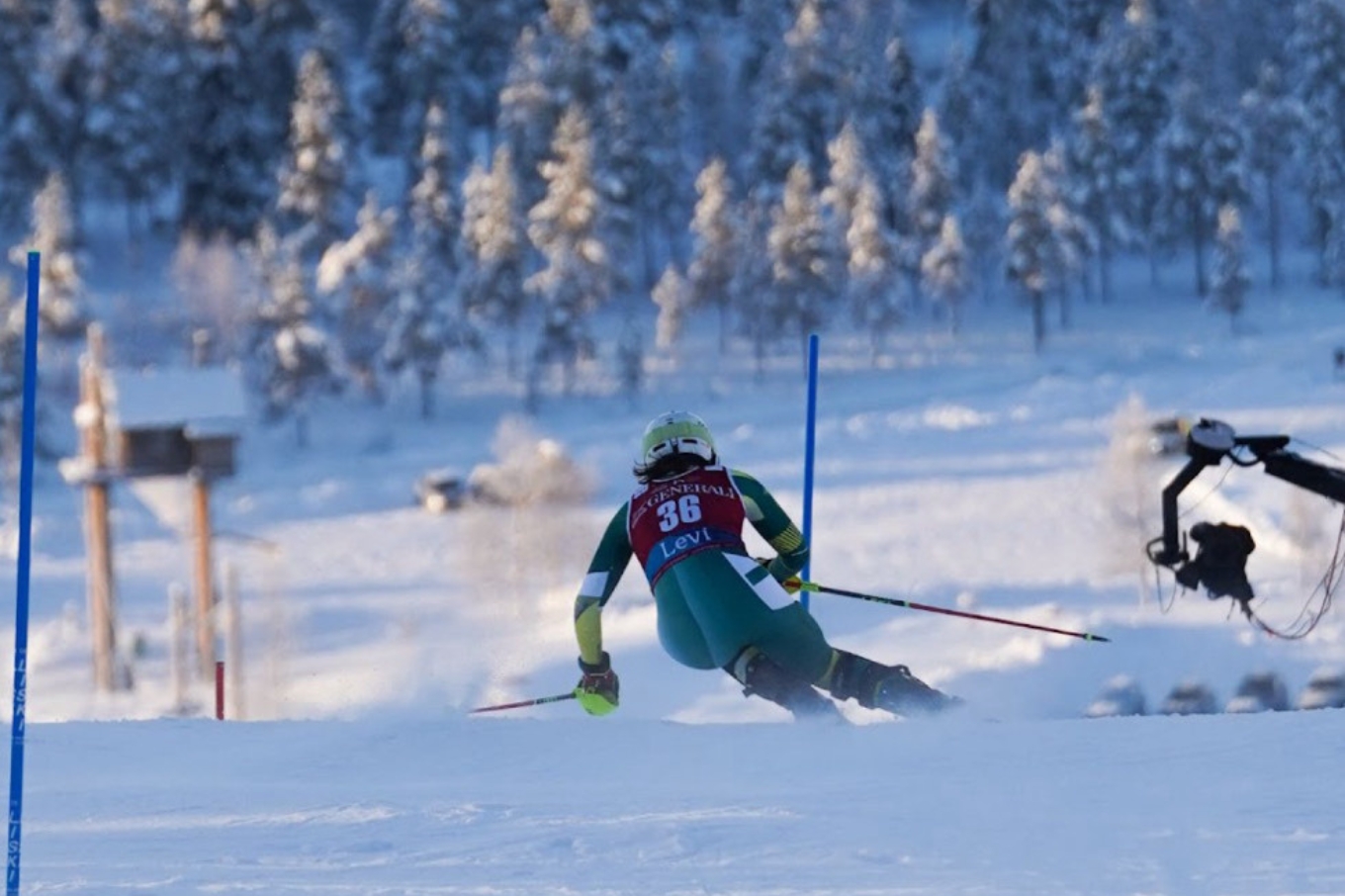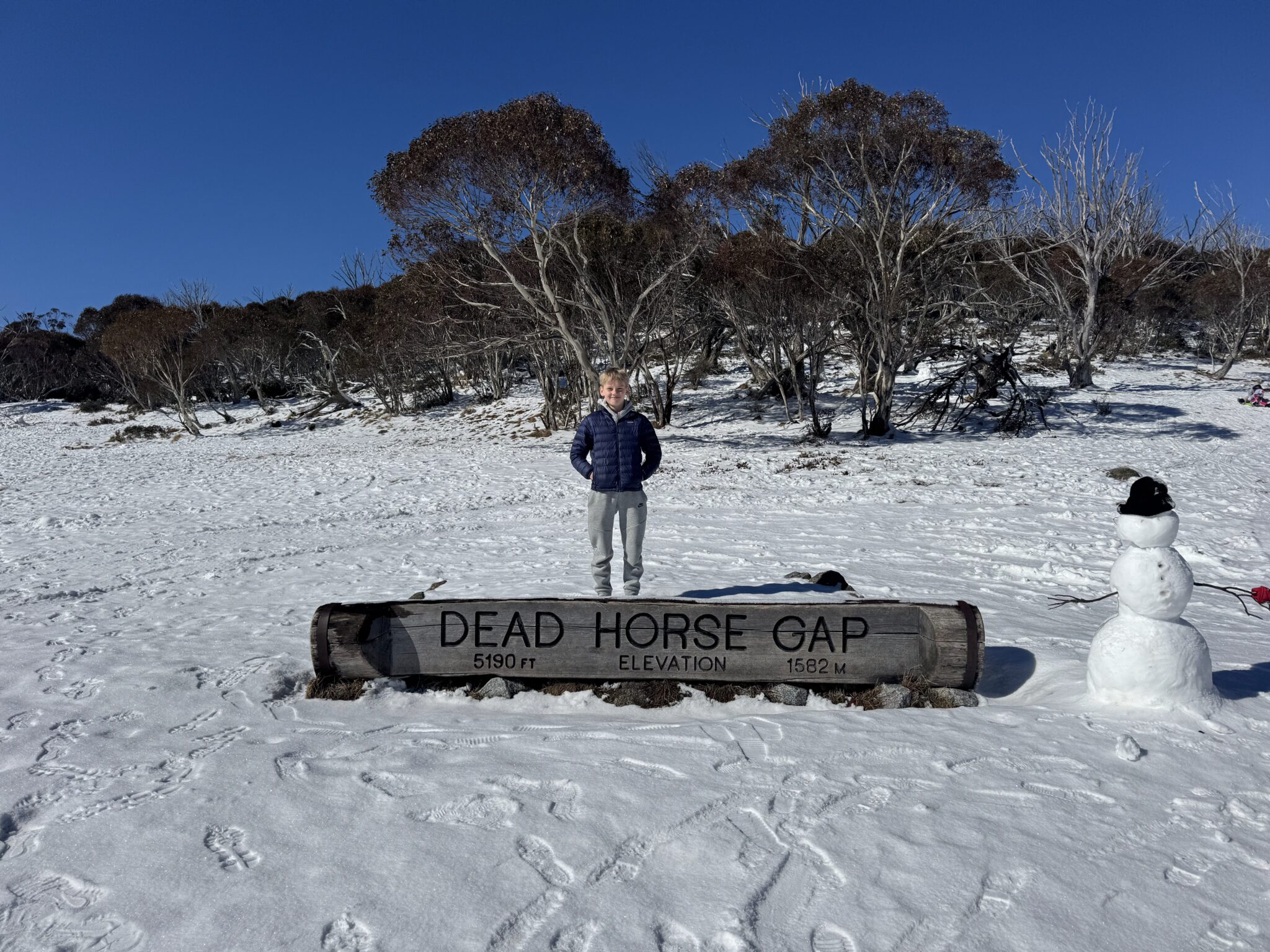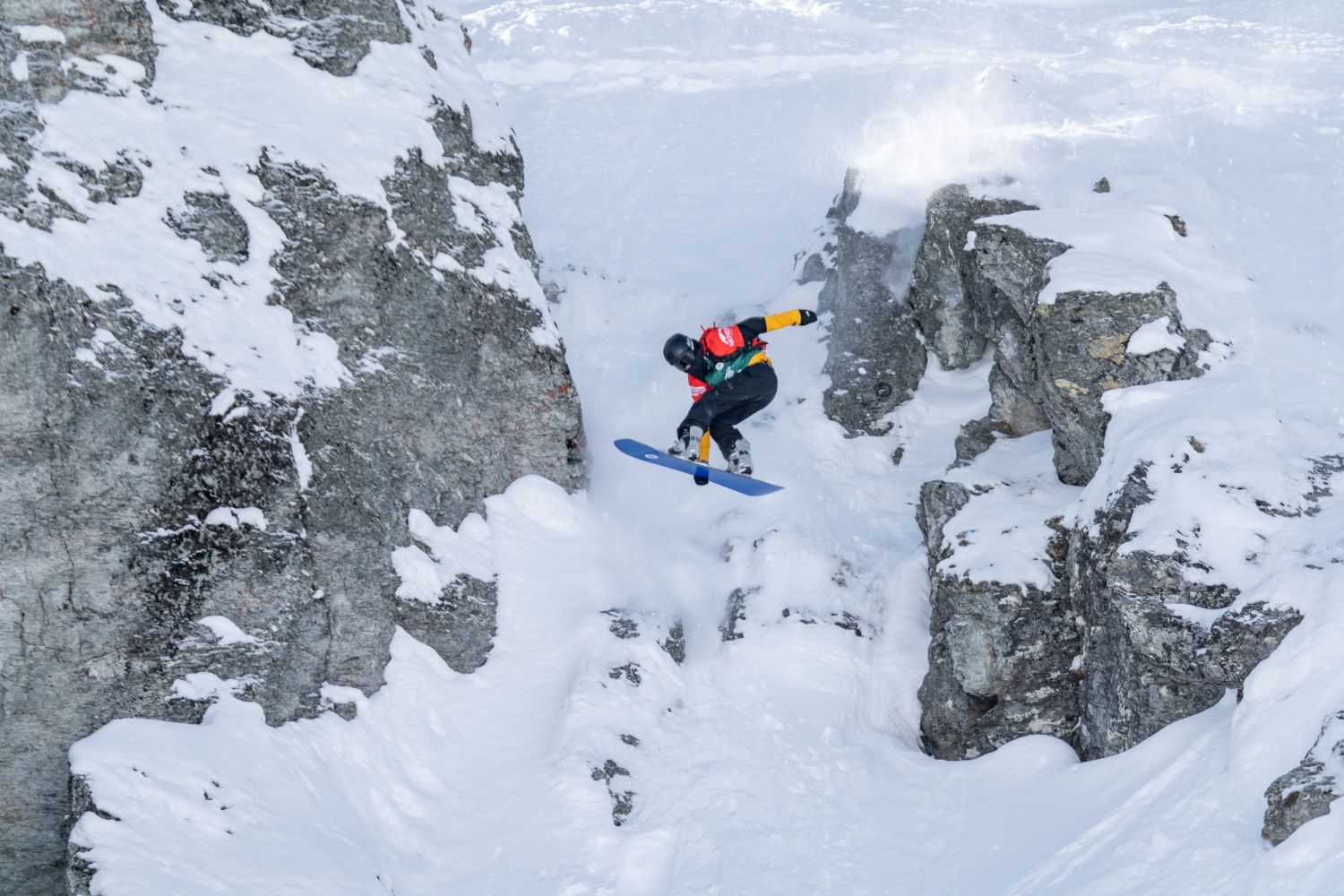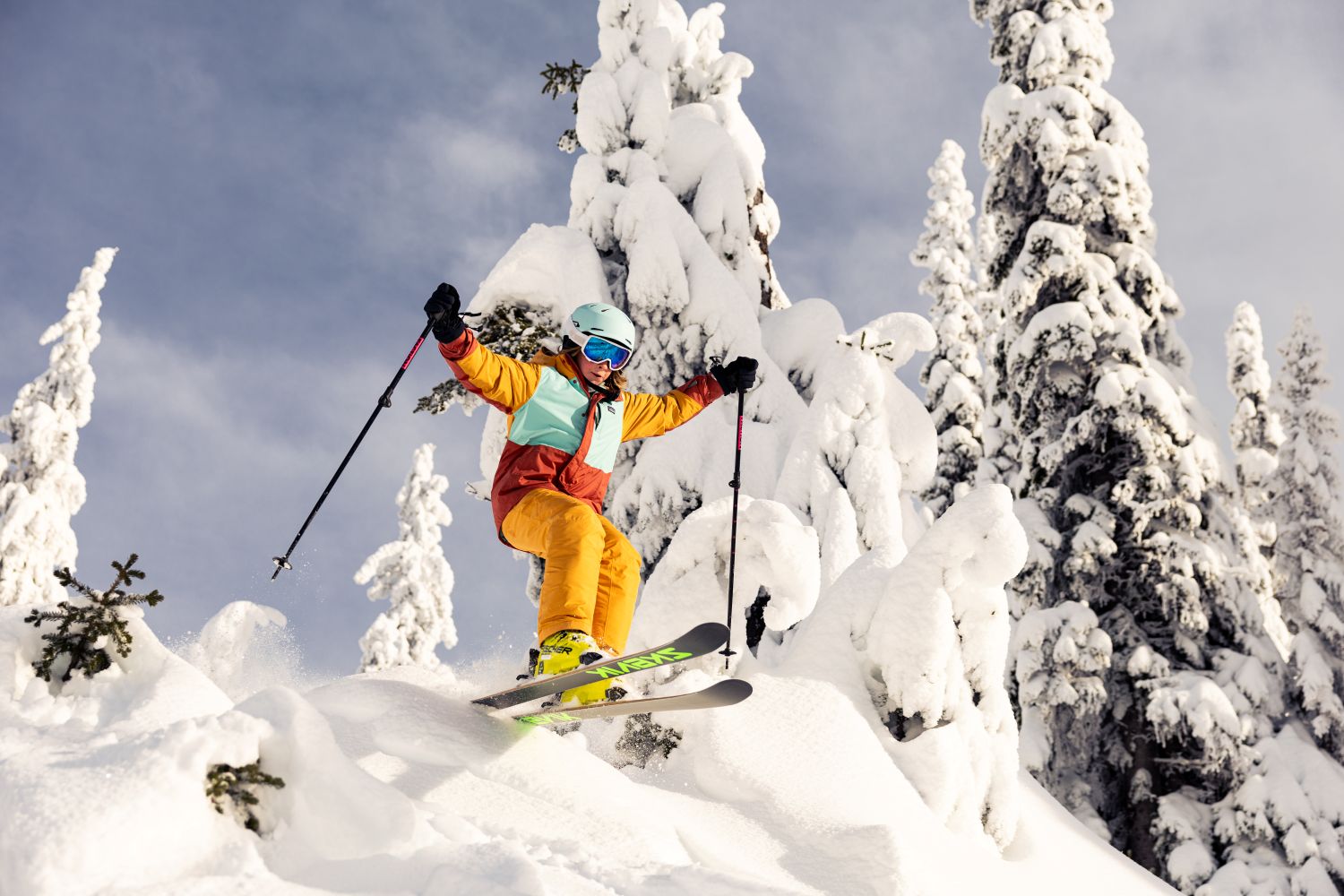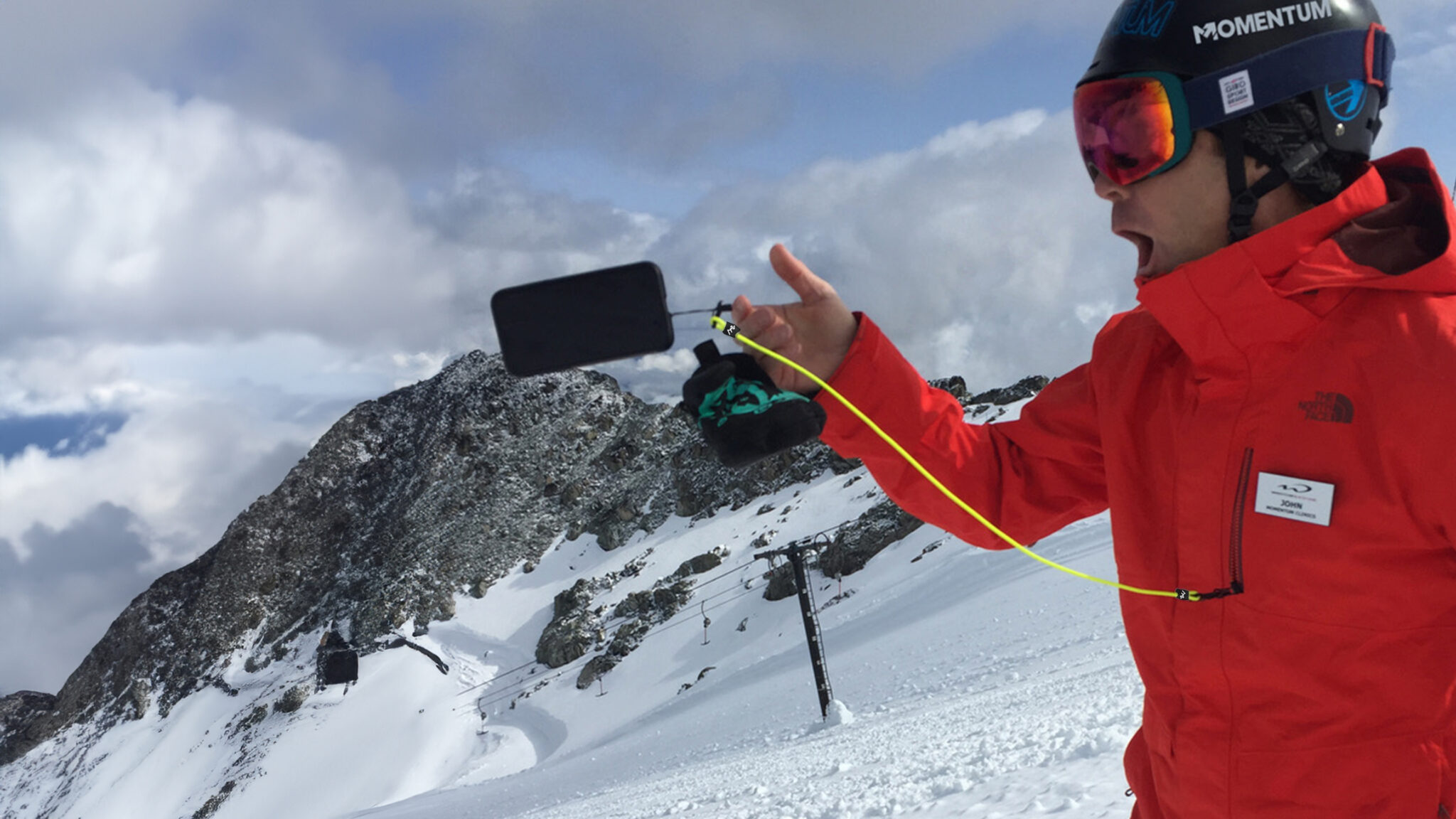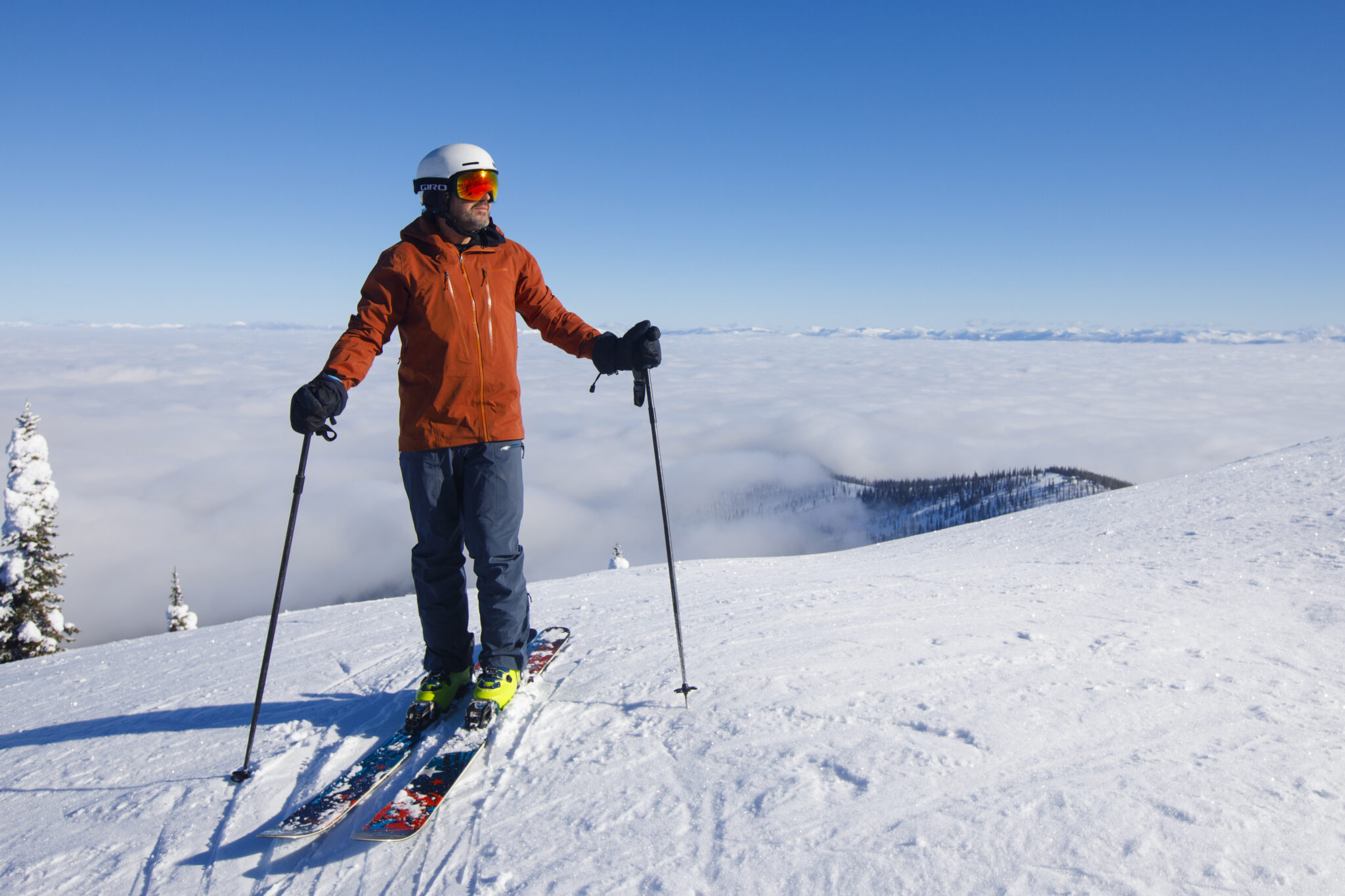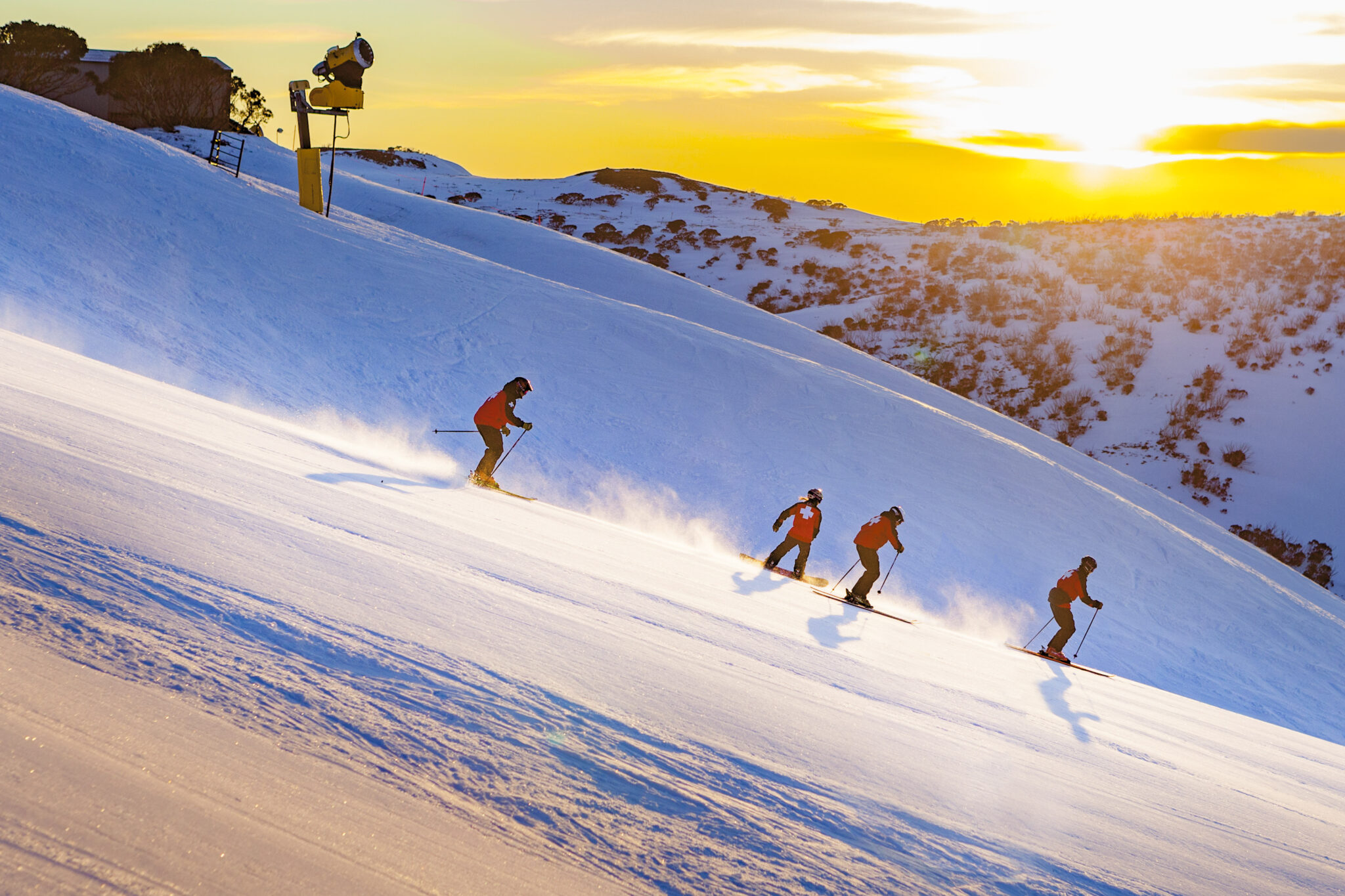This November, while training in Levi, Finland, I had the chance to catch up with my longtime friend and now fellow teammate on the Australian National Alpine Ski Team, Madi Hoffman. We were teammates for five years at the Thredbo Ski Racing Club, and I’ve known her since I was 12, so this interview felt particularly special to me.
Last year in Levi, Madi made history by scoring her first World Cup points, finishing in the top 30. It was a groundbreaking moment for Australian alpine skiing—the first time this had happened in over 20 years, since Zali Steggall.
Ahead of this year’s World Cup in Levi on November 16th, I had the opportunity, thanks to Snow Action, to sit down with Madi and talk about her ski racing journey, who she is, and her future goals. I hope you enjoy the interview:
What first sparked your interest in skiing, and how did you get started on this journey?
The first time I skied, I was sandwiched between my dad’s legs as we snowplowed down Friday Flat at Thredbo, and I remember shouting, “Faster, faster, faster!” I just loved going fast and was determined to beat my brothers to the bottom of the mountain.
I got into racing when I switched primary schools in Year 2 and discovered Interschools. At a morning assembly, Mr. Tickle—the music teacher and snowsports coordinator—asked anyone who could ski to grab a flyer for home. I picked one up, went to the information night with my family, and the rest is history.
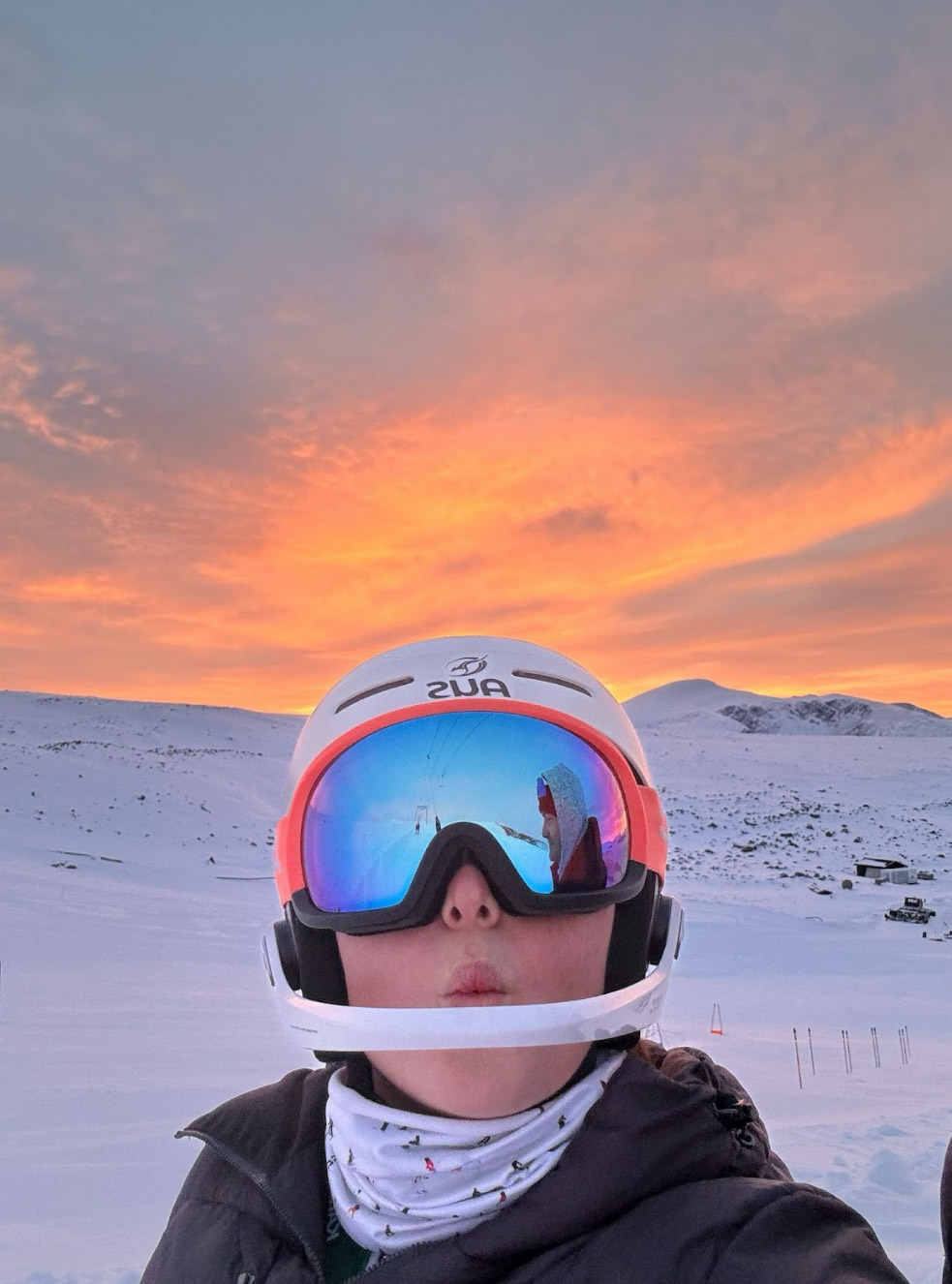
As you grew up in Australia, skiing isn’t the most mainstream sport. Were there any unexpected influences or experiences—whether in your family, community, or other sports—that shaped your passion for skiing?
Growing up in a close-knit family, my parents were always looking for activities we could enjoy together. My three younger brothers and I tried various sports, but few allowed us to participate as a group. Skiing became a family affair, a chance for us to all ski together, ride the chairlift, and share the experience. I didn’t have to sacrifice time with my family to pursue my sport, which was a huge advantage.
We were teammates at TSRC for nearly five years. How did being part of TSRC and skiing at Thredbo/in Australia help prepare you for competing at the international level?
My time with TSRC was some of the most fun I’ve had in my career. I spent around ten years at Thredbo, training twice a day and doing dryland in the afternoons, six days a week. It was intense, but a blast! While Australian snow doesn’t match the icy conditions of World Cup tracks, it did prepare me for challenging weather. Rainy ski days were so common back home that whenever it rains now, I feel like the universe is on my side!
You’ve had an international life, from living in Australia to Singapore, the US, and now Europe. Where is home to you?
I’ve been all over, which has made “home” a bit tricky to define. Until I graduated from university in May, I would have said I lived in Park City, UT, but my family’s home was Manly, NSW. Now, I’d say my family lives in the US, but I split my time between Australia, Europe, and visiting them. Home is really more of a feeling—it’s wherever I’m with people who feel like family.
Skiing has taken you to some incredible places—can you share a few of the most memorable moments or locations that have shaped your career?
When I look back on memorable moments, they’re split between positive and challenging experiences. My first World Juniors in Pozza di Fassa, Italy, stands out—it was my first time representing Australia, and also where I had my first major injury, a ruptured patellar tendon. A more positive experience was scoring my first World Cup points in Levi, Finland, last year, becoming the first Aussie female to score WC points in SL since 2002.
Reflecting on your first year competing at the World Cup level, what were the biggest challenges and triumphs?
My goal for my first World Cup season was simply to score points once. I was fortunate to achieve that, but it was hard managing expectations after hitting my season goal right away. The toughest part was dealing with the pressure I put on myself and how unfamiliar each course felt.
Last year in Levi, you made history by earning the first World Cup points for an Australian alpine skier in nearly 20 years. Looking back, what key lessons or takeaways from that experience are you bringing into this season?
In Levi, I had such a clear plan going into the race because I’d had five days of practice on the course. That familiarity gave me confidence and clarity. Going into this season, I’m aiming to develop a plan just as clear for each race, even if I don’t get as much time on the course.
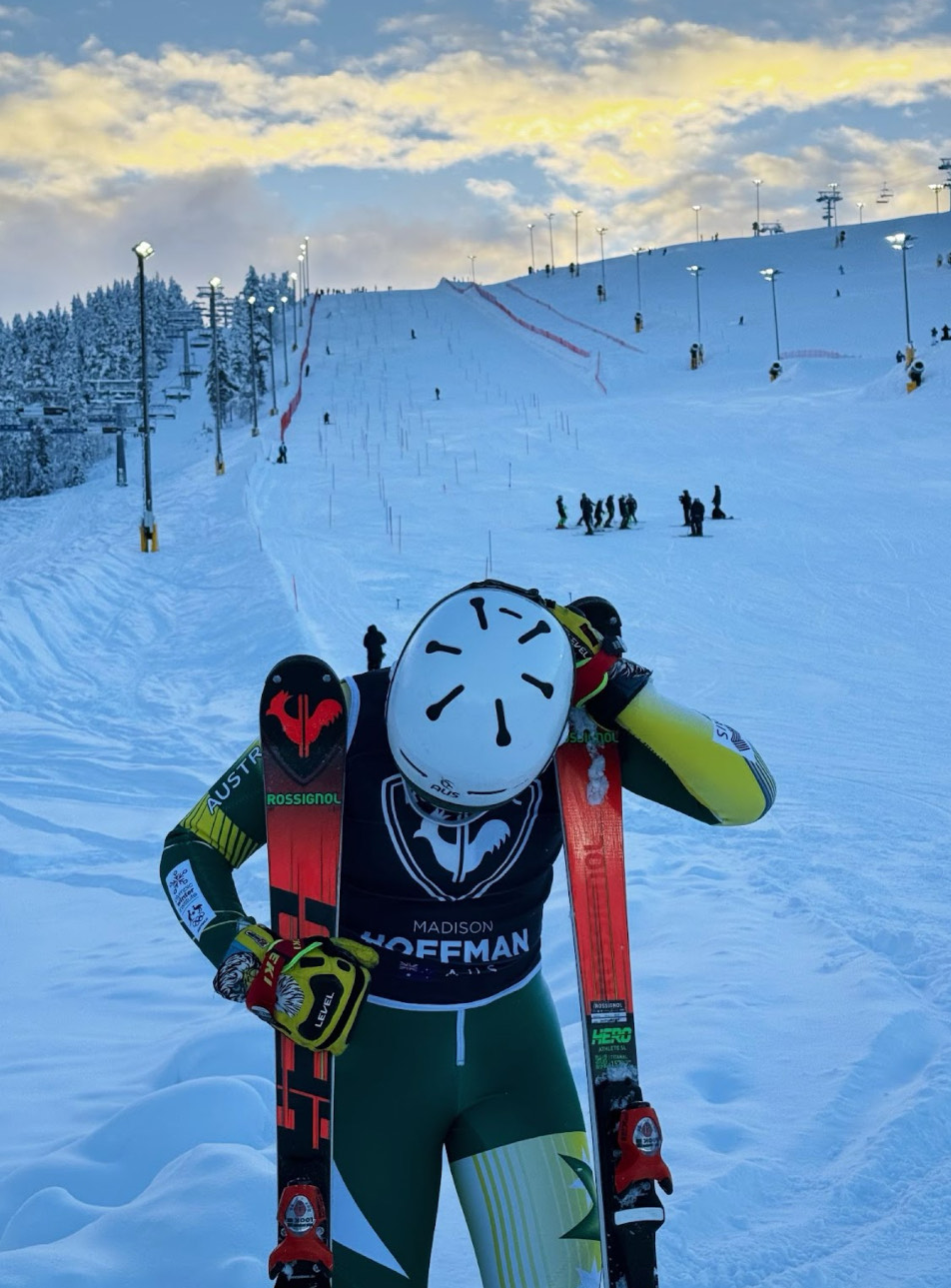
Last year, I watched you score your first World Cup points in Levi, and it was a deeply emotional experience for my family. It was the last World Cup I watched with my dad before he passed away a week later, and the broadcaster even gave an unexpected shoutout to him. How did that moment feel for you, knowing the significance it held for so many people, for your family and friends, the Australian ski community and even my family?
Watching the replay and hearing the commentator give your dad a shout-out was surreal; I hoped he heard every word. It’s taken time for what happened in Levi to sink in—it felt like a fever dream for so long. Now, I just hope that by scoring those points, I’ve shown young Aussies that it’s possible to compete on the world stage with enough hard work and patience.
Skiing at such a high level requires immense mental toughness. Can you walk us through a moment when you had to overcome self-doubt or push through a tough mental block? How do you manage pressure on race day?
I’ve had to overcome mental challenges over the years—fear of failure, injuries, low self-confidence. Last season, I learned that stepping back was often the best approach. After a rough period, I booked a last-minute trip to the beach to fully relax and disconnect. Sometimes, taking a step back is the best way forward.
Skiing demands both physical precision and mental clarity. Is there a personal philosophy or mantra that helps keep you grounded?
Staying present has been a big focus for me lately, and I’m currently doing an athlete mindfulness course to help with that. I also have “NSD”—Never Say Die—sharpied on my poles, inspired by the Matildas. It’s a reminder to stay in the fight, no matter what.
What are your goals for this season, and how are you preparing to meet them? How have you gone about building a strong support team around you, and why is this element so crucial for your success?
This season, my goal is to prove to myself that I belong on the World Cup circuit. I’m lucky to have an incredible team around me, including my coach Joe and technician Cam, as well as strength coach, Doug, PTs, massage therapist, sports psychologist, nutritionist, and, of course, my family.
As one of the few Australian skiers on the World Cup circuit, do you feel any added pressure in terms of representing your country? How does that impact your motivation or mindset when you compete?
I don’t really feel added pressure from being one of the few Australians on the World Cup circuit. I actually use my nationality as motivation. As a U14 at Whistler Cup, I remember telling myself in the start gate, “Show them Aussies can ski.” That mindset still drives me today—I want to show the world that Australia is more than beaches and wildlife.
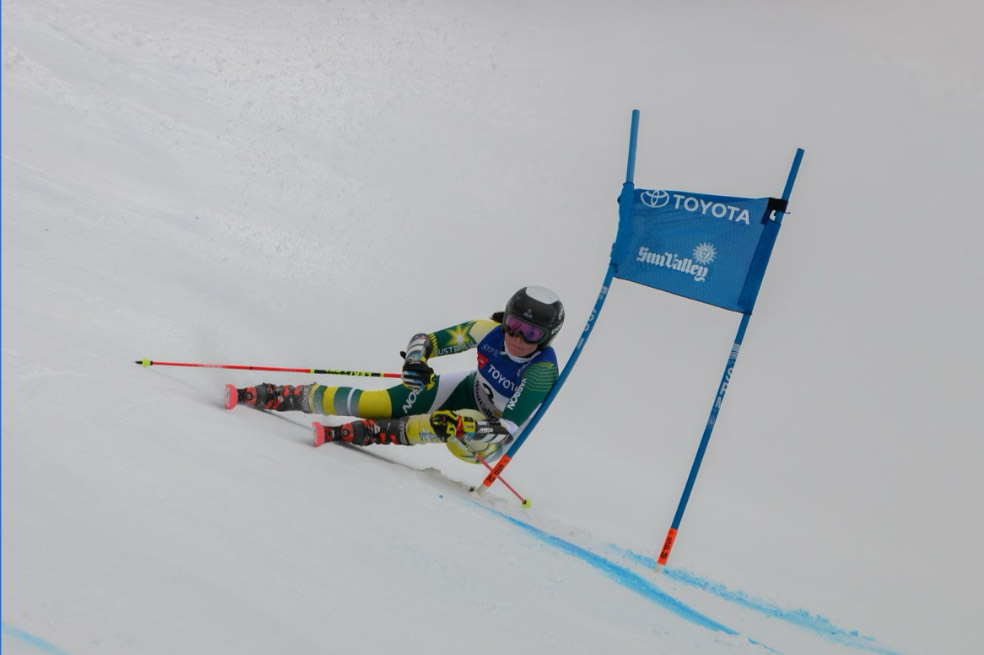
What does success mean to you? Is it about podiums and points, or do you define it differently?
Success, for me, is about staying present and not tying my self-worth to my skiing. This year, I set specific goals with my coaches and then let them be—my biggest challenge is getting out of my own way and letting myself ski freely. So, if I am able to attack and show my true skiing that will be a success.
Skiing at the highest level comes with its fair share of injuries and setbacks. How did you handle those low points, particularly your knee injury before the last Olympics?
When I tore my ACL the day after making the Olympics, I felt a mix of relief and sadness. I don’t love to admit the relief part though. Recovery from this injury was different; I focused on becoming the strongest, happiest version of myself, rarely ever did skiing cross my mind. I knew that if I was strong, and happy skiing well would follow with time.
Looking ahead, where do you want to take your skiing in the next few years, and what kind of legacy do you hope to leave?
I’d love to reach the Olympic stage and break into the top 30. Ultimately, I want to show others that it’s okay to chase your dreams—working hard for something you’re passionate about is cool and so so rewarding.
From your perspective, what’s the future of skiing in Australia? Are there any changes or improvements you’d like to see in terms of resources, training, or opportunities for young athletes?
I think the future of alpine skiing in Australia is a bit uncertain at the moment. There are a lot of young athletes in the pipeline, but they don’t always know which direction to take. Alpine skiing doesn’t have the same structured pathway that sports like moguls, boardercross, or aerials have, so many of us have had to navigate things on our own. One thing I’d really love to do is be a resource for younger athletes and their families. Growing up in Australia and getting into ski racing through Interschools, I see myself in so many young skiers, and I’d love to bridge that gap, offering advice and mentorship to anyone who asks.
I remember catching up with you in Levi for a coffee and a game of Catan with Dzenifera Germane and Reece Bell and I’m really excited about your new blog, Moments with Mads! Aside from reading your blog, what are some other ways people can support you and follow your journey this season?
Yes—love a good Catan game! Support comes in so many ways, whether it’s tuning in to watch the races, following my blog (I’m aiming to post every Monday), or even reaching out if you’re a brand or corporation looking to work together; I’d love to chat. But honestly, the simplest and best way someone can support is by tuning in and sending me all your fast-skiing vibes. I swear I can feel the energy!

